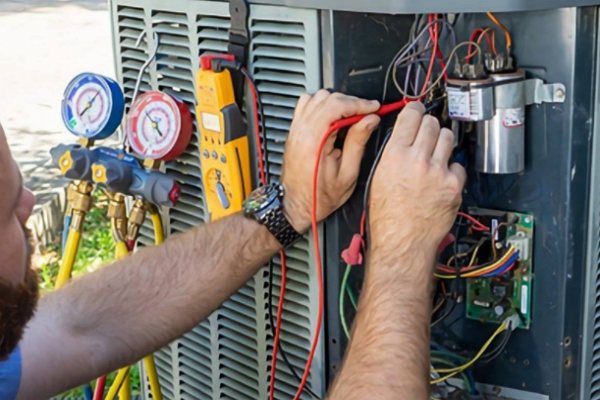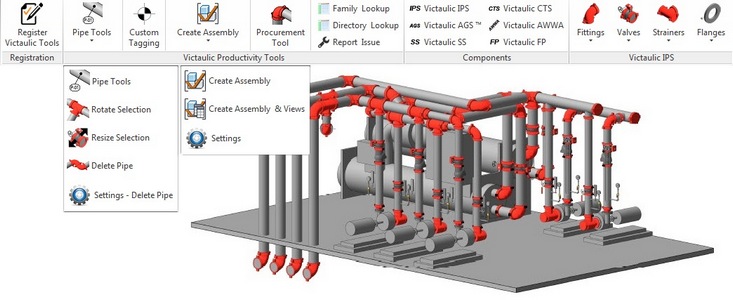
You will need to fulfill several requirements if you are interested in becoming a ct electrical contractor. These include: Apprenticeship, Exam, liability insurance, and a license to perform unlimited electrical work. You'll also need a National Electric Code (NEC) certification. After earning your license, you'll need to renew your certification every year and complete mandatory continuing education courses.
Apprenticeship
There are many apprenticeship opportunities in Connecticut's electrical industry. Some programs are union-based while others aren't. Both offer experience and training. Many apprenticeship programs are managed by the International Brotherhood of Electrical Workers Local 488, which is part of an international training program. These programs are designed to help students land professional positions after they complete five years of training.
Connecticut has a rising demand for electricians. It is an ideal place to get started in an electrical career. According to the Department of Labor, the state's number of electrician jobs will rise by 12.8% between 2024 and 2024. Those interested in becoming CT electricians can take advantage of this growth by training in an apprenticeship through a Connecticut electrical contractor.

Exam
If you're considering a career as a CT electrician, you need to prepare for the state's exam. General electrical knowledge, branch, service circuits, bonding and raceways and boxes are all covered in the exam. The exam also covers low-voltage system and illuminated signs. It is $65 and must be pre-approved. To obtain your contractor license, you will need to pass both a law and business exam.
After becoming journeypersons, electricians in Connecticut are eligible for an electrician's permit and can begin working as an electric contractor. The E-1 unlimited electrician license allows them to work in the electrical industry and run a business. You must have completed at least 8,000 hours on-the-job training, and at least 144 hours in electrical training classes per year to earn a journeyperson's license. Either enroll in an apprenticeship program or take classes at the local electrician trade school.
Liability insurance
Liability insurance for Connecticut electricians can provide valuable coverage for the electrical industry. Not only does this coverage protect your business from lawsuits, but it also covers the costs of defending yourself in court if you are found guilty of making a mistake. Additionally, commercial auto insurance is required if you drive a commercial motor vehicle. This will provide coverage for property damage and medical care. An electrician's business activities are not covered by personal auto insurance.
Electricians can travel between clients and work places by using their own vehicles. This means that they have to drive a lot. Commercial vehicle insurance is required to protect against theft or damage to property of others. It can also cover cargo loss or damage. Workers comp insurance is also required if an electrician works for another company. This insurance covers employees who are injured while on the job.

What are the requirements to become a ct-electronician?
The first step to become a licensed Connecticut electrician is to complete an apprenticeship. You must be at the least 18 years and hold a highschool diploma to qualify for an apprenticeship. You can still start classroom and practical studies if you are 16 and enrolled in vocational high schools. You will need to pay $110 for registration and complete 720 classes. You must also work for 8,000 hours under the supervision of an electrical contractor before you're licensed.
Once you've finished your apprenticeship, you'll need to pass a trade exam and a business and law exam. After that, you'll need to pass a licensing exam and pay a fee of $150. A specialty license is available if you want to become a specialist in an area of electrical work. The specialty licenses are more focused and require less experience.
FAQ
When do I have to pay for the service/contractor?
The payment schedule depends on the type of service being provided. A contractor might hire to install a roof. You would usually pay when the work is complete. However, when you purchase a product from a seller, such as a kitchen range oven, you may only pay once you have received and tested it.
Are there other things I should consider?
Yes. Check your local laws to see what types of projects are allowed and what conditions must be met. Some states require that you obtain council approval to build. Some states only require you to notify them about your plans. Check with your local authorities to see where they stand on the issue.
What is a "service contract agreement"?
A Service Contract Agreement (SCA) is an agreement between two parties to provide services to each other. The SCA specifies the services to be provided, their cost, time and effort required, who will pay for them, and when they should start. The SCA also describes what happens if either side violates its obligations.
What's the purpose for the service agreement?
A Service Agreement defines the terms by which a customer agrees that they will buy goods from your company. It also specifies how you will deliver those services to them in return for payment.
The most widely used type of this document is a Sales Order Form. You will need to state the products and prices that are being purchased by your customer. You then list any other items included in the order, such as delivery charges, VAT, insurance, etc. The last step is to specify when and how the order should arrive.
Depending on the nature and purpose of the transaction, it is possible to use another document.
An invoice may be used if you provide a service and not a product.
A Purchase Order Form is what you would use to buy from someone else.
It is important to include all required information when drafting a sale order form.
Remember: The more detailed your sales order form is, the easier it will be for the buyer to understand.
Is a service agreement a warranty?
A service agreement is not a warranty. A service contract is an agreement between two people to exchange goods or services. If the product does not work as promised, the customer agrees pay for repair or replacement. This type of contract is also known by the term maintenance contract.
Can I cancel my agreement at any time?
Yes, but you must do it within 14 days after signing the contract. Your contract can be terminated by providing written notice no later than 7 working days before the specified end date. In some cases, however, you might still owe contractor money for work done.
Statistics
- Depending on the client's trustworthiness and financial stability, a deposit is usually 10 to 50% of the total contract amount. (lawdepot.com)
- (1) Ascertain the extent to that offers are based on the payment of overtime and shift premiums; and (2) Negotiate contract prices or estimated costs without these premiums or obtain the requirement from other sources. (acquisition.gov)
- (3) The contracting officer may provide for a contract price adjustment based solely on a percentage rate determined by the contracting officer using a published economic indicator incorporated into the solicitation and resulting contract. (acquisition.gov)
- (1) Except as provided in paragraphs (a)(4) and (a)(8) of this section, if the estimated amount of the contract or subcontract is $10 million or more, the contracting officer shall request clearance from the appropriate OFCCP regional office before- (acquisition.gov)
- (d) Contractor disputes related to compliance with its obligation shall be handled according to the rules, regulations, and relevant orders of the Secretary of Labor (see 41 CFR60-1.1). (acquisition.gov)
External Links
How To
How to Write A Good Service Agreement?
Two requirements must be met when you create a service contract.
First, you must satisfy the requirements of the customer.
You must also comply with the legal requirements of your seller.
It is important to ensure that you have the following items covered by your service agreement.
-
Identify the parties.
-
Define what the agreement is about.
-
Indicate the length of the agreement.
-
Find out if you offer any warranties.
-
Describe the obligations and liabilities of both parties.
-
You must choose the payment method.
-
Be clear about how disputes can be resolved.
-
Provide details about any special instructions or limitations.
-
Sign the contract by both parties.
-
Include a clause saying that the agreement is understood and has been fully read before being signed.
-
A copy of the agreement should be kept with you.
-
Before you send your service agreement to the buyer, ensure that you carefully review it.
-
If you find anything wrong with the agreement, contact your supplier immediately so they can fix it.
-
Once everything has been corrected, send the revised version.
-
You should not sign an agreement until you receive confirmation from the buyer that they have accepted any changes.
-
Keep a copy the original agreement as well as the finalized version.
-
You should be aware that not all service providers are legally responsible to ensure that customers receive high-quality services in certain countries.
-
Keep a written record of all correspondence between yourself and the customer in case there is a dispute.
-
Professional advice is always a good idea when you are drafting a service contract.
-
After agreeing to the terms, the buyer can request a modification to the contract terms.
-
Always verify that you are comfortable with a change request before agreeing to it.
-
Never accept a request to change without first verifying.
-
Tell the customer why if you don't wish to accept the change.
-
If you are still not in agreement, then tell them that the change is unacceptable.
-
If the customer doesn't accept your decision then you may refuse to conclude the contract.
-
Once the customer has accepted your decision, you can proceed with the contract.
-
You should agree to any changes to your contract terms.
-
Before you send out the completed contract, make sure that you have checked it thoroughly.
-
It is also important to ensure compliance with the law.
-
Send it to the buyer once you have signed the contract.
-
Last but not least, be sure to save a copy of your completed contract for future reference.
-
You could lose money if you fail to comply with any of these simple rules.
-
A good service agreement can be written quickly.
-
The more detailed, the better.